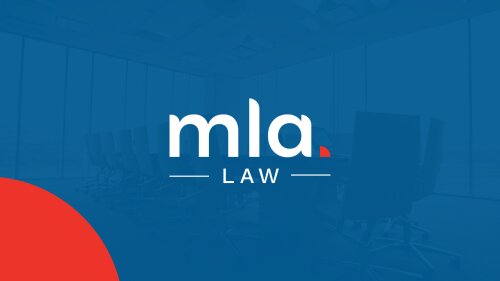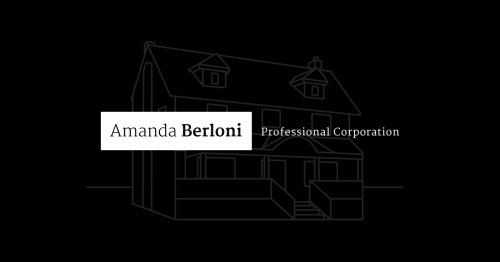Best Renewable & Alternative Energy Lawyers in Greater Sudbury
Share your needs with us, get contacted by law firms.
Free. Takes 2 min.
List of the best lawyers in Greater Sudbury, Canada
About Renewable & Alternative Energy Law in Greater Sudbury, Canada
Greater Sudbury, Ontario, is recognized for its ongoing efforts in environmental sustainability and energy innovation. Due to its mining history and geographical size, Sudbury is uniquely positioned for the development and adoption of renewable and alternative energy sources, such as solar, wind, hydro, and biomass. Renewable and alternative energy law in this area addresses the legal structures, regulatory frameworks, and municipal policies that govern the production, distribution, and use of clean energy. These laws aim to encourage sustainable energy projects while balancing environmental protection, land use, Indigenous rights, and economic development. Whether you are an individual, a business, or a community group interested in developing, investing in, or using alternative energy sources, it is crucial to understand the legal requirements and opportunities that are specific to Greater Sudbury.
Why You May Need a Lawyer
Engaging a lawyer experienced in renewable and alternative energy law can help you navigate complex legal challenges and seize opportunities in this growing sector. Here are common situations where legal help may be necessary:
- Drafting and negotiating contracts for renewable energy projects
- Securing permits and regulatory approvals for installing solar panels, wind turbines, or biomass systems
- Understanding municipal zoning, land use, and environmental impact assessments
- Addressing legal questions related to Indigenous and treaty rights
- Resolving disputes between energy producers, utilities, property owners, or government agencies
- Accessing government incentives, rebates, and funding programs
- Reviewing power purchase agreements or net metering contracts
- Ensuring compliance with health, safety, and environmental standards
- Managing intellectual property or technology licensing related to clean energy innovations
- Structuring partnerships or joint ventures for large-scale renewable projects
Local Laws Overview
Several legal frameworks govern renewable and alternative energy in Greater Sudbury. Here are key aspects of local laws to consider:
- Municipal Zoning and Bylaws The City of Greater Sudbury has zoning bylaw and building permit requirements regarding where and how renewable energy systems can be installed, particularly for wind and solar installations in residential, commercial, or rural zones.
- Provincial Legislation Ontario's provincial laws, such as the Electricity Act and Environmental Protection Act, set out provincial rules for connection to the grid, environmental assessments, and licensing.
- Federal Regulations Federal laws oversee broader issues such as impact assessments for large projects, tax incentives, and interprovincial energy transmission.
- Indigenous Consultation Many lands in and around Sudbury are subject to Indigenous rights and claims. The legal duty to consult and accommodate affected Indigenous communities is critical before any energy project begins.
- Net Metering and Power Purchase Agreements Local utility policies and Ontario’s Independent Electricity System Operator (IESO) manage net metering and the sale of electricity back to the grid, including related contract laws.
- Environmental Assessments Projects may require environmental screenings or full assessments depending on their size and potential impact, overseen by municipal, provincial, or federal authorities.
Frequently Asked Questions
What types of renewable energy projects are common in Greater Sudbury?
Common renewable energy initiatives in Sudbury include rooftop solar panel installations, wind turbine projects, small hydroelectric ventures, and biomass heating solutions for homes and businesses.
Do I need a permit to install solar panels on my home in Sudbury?
Yes, most solar panel installations require a building permit from the City of Greater Sudbury, and electrical work must comply with the Ontario Electrical Safety Code.
What incentives or programs are available to support renewable energy projects in Sudbury?
There are provincial and federal incentives, including grants, rebates, and tax credits, which change frequently. Ontario’s Net Metering Program and various municipal grants may also be available.
How do I connect my renewable energy system to the local electricity grid?
You must apply to your local utility for grid connection approval and meet Ontario Energy Board and IESO standards. Net metering agreements are commonly used for compensation.
Are there any restrictions on where I can install a wind turbine in Sudbury?
Yes, municipal zoning bylaws and environmental regulations place restrictions on wind turbine locations, particularly regarding minimum setback distances and noise levels.
What are my legal obligations regarding Indigenous consultation for energy projects?
If your project may affect Indigenous lands or rights, you are legally required to consult and accommodate local Indigenous communities under federal and provincial law.
Who is responsible for environmental assessments on renewable energy projects?
Depending on the project’s size and location, environmental assessments may be required by municipal, provincial, or federal government agencies.
What happens if my renewable energy system causes a dispute with neighbors?
Legal disputes arising from noise, aesthetics, or property impacts can be addressed through negotiation, mediation, or legal action. Early consultation with neighbors is recommended.
Can a lawyer help me access government funding for my energy project?
Yes, a lawyer can help ensure your project meets eligibility requirements for funding, assist in preparing applications, and review the terms of grants or loans.
Is it possible to sell surplus electricity generated by my renewable system?
Yes, through Ontario’s Net Metering Program, you can supply surplus electricity to the grid and receive bill credits, subject to specific technical and contractual requirements.
Additional Resources
If you are seeking more information or assistance, consider reaching out to these local and provincial resources:
- City of Greater Sudbury Environmental Planning Department
- Ontario Ministry of Energy
- Independent Electricity System Operator (IESO)
- Ontario Energy Board (OEB)
- Canadian Renewable Energy Association (CanREA)
- Sudbury Hydro Plus (local utility)
- Indigenous Energy Association of Ontario
- Federation of Canadian Municipalities - Green Municipal Fund
- Ministry of Northern Development
- Sudbury & District Law Association (for lawyer referrals)
Next Steps
If you need legal assistance for a renewable or alternative energy matter in Greater Sudbury, start by outlining your project goals and gathering any relevant documents, such as site plans, contracts, or correspondence with government agencies. Consider your main concerns, such as regulatory compliance, funding, or community impact. You can then contact a lawyer with experience in renewable and alternative energy law who practices in Northern Ontario. Lawyers can clarify your rights and obligations, represent you in regulatory proceedings, and help you move your project forward efficiently. If you are unsure where to find a suitable lawyer, consulting the Sudbury & District Law Association or searching the Law Society of Ontario’s directory can be a good starting point. Early legal advice is often essential to avoid delays, manage risks, and ensure the long-term success of your clean energy venture.
Lawzana helps you find the best lawyers and law firms in Greater Sudbury through a curated and pre-screened list of qualified legal professionals. Our platform offers rankings and detailed profiles of attorneys and law firms, allowing you to compare based on practice areas, including Renewable & Alternative Energy, experience, and client feedback.
Each profile includes a description of the firm's areas of practice, client reviews, team members and partners, year of establishment, spoken languages, office locations, contact information, social media presence, and any published articles or resources. Most firms on our platform speak English and are experienced in both local and international legal matters.
Get a quote from top-rated law firms in Greater Sudbury, Canada — quickly, securely, and without unnecessary hassle.
Disclaimer:
The information provided on this page is for general informational purposes only and does not constitute legal advice. While we strive to ensure the accuracy and relevance of the content, legal information may change over time, and interpretations of the law can vary. You should always consult with a qualified legal professional for advice specific to your situation.
We disclaim all liability for actions taken or not taken based on the content of this page. If you believe any information is incorrect or outdated, please contact us, and we will review and update it where appropriate.










